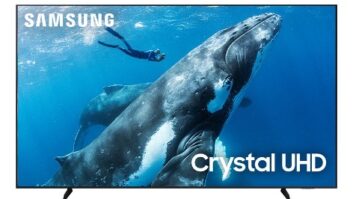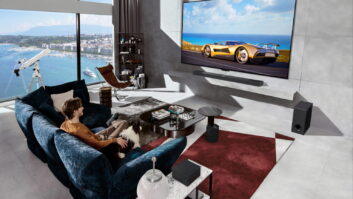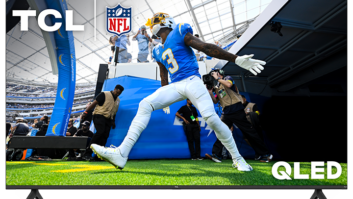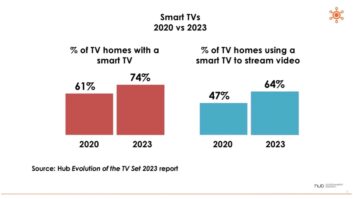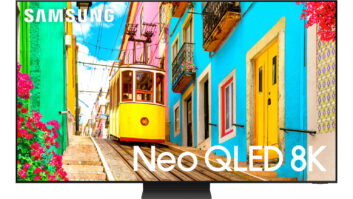A shakeout is coming soon to the United States among the ranks of second-tier flat-panel TV brands, and only those with strong core competencies will be able to survive, said Luke Ouyang, Envision Peripherals (EPI) consumer electronics sales director.
Ouyang, who took reporters on a tour of an LCD assembly factory that produces displays for some of the world’s largest brands including EPI’s AOC and Envision brands, predicted that by 2010 the industry will be selling 100 million LCD TV units worldwide, and that the top five brands may control up to 70 percent of the market.
By then, Fremont, Calif.-based EPI, which markets Envision- and AOC-branded PC monitors and AOC-branded LCD and plasma TVs in the United States, should rank among the top U.S. players, Ouyang predicted, due in large part to its connection to China-based Top Victory Electronics (TPV). TPV, which is a subsidiary of China-based LCD panel producer BOE, is an investor in EPI.
Ouyang said TPV, which claimed 22.5 percent share of worldwide PC monitors in 2005 with revenue of $5 billion, is targeting 5 percent share of the U.S. LCD TV business by 2010.
TPV is one of the world’s largest assembly companies for CRT, LCD and plasma products, producing some models of the flat-panel TVs and PC monitors for such leading brands as Sony, Sharp, Philips, Magnavox, Dell and HP, among others, in addition to EPI’s AOC line.
Ouyang said the company has collected substantial knowledge of design and manufacturing from its OEM relationships and is now able to sell high-quality AOC-branded LCD and plasma TVs at value price points.
TPV’s heavy manufacturing volume also gives it status as the largest customer of LCD panels, which brings allowed access to “A grade” LCD panels at full supply levels last year, despite market shortage conditions.
Meanwhile, Ouyang said that to ensure AOC’s longevity in the U.S. CE business, EPI has instituted a policy that no single customer will take more than 20 percent of its volume, and is studying using multiple model lines to cover a variety of distribution channels to protect dealers against unequal pricing practices.
“If you sell the same products into national and discount chains, you will have a lot trouble with complaints about selling the same model with different MSRPs,” Ouyang said. “Pricing is something we are thinking a lot about, and we are looking to offer different models to different categories of retailers.”
Similarly, the company is putting together a plan to offer private-label goods for some accounts, but will make sure that what it produces under a private badge doesn’t conflict with products it sells under its own AOC lines.
“We are not just going to go into the market and disappear tomorrow,” Ouyang vowed. “Our IT monitor business has survived for 10 years.”
TPV and EPI added the AOC flat-panel TV lines about two years ago as a way of continuing growth as the PC monitor market begins to compress, Ouyang said. EPI used its IT retail partners, in part, to launch TVs but is looking to expanded into CE and other channels to reach its lofty market share targets, Ouyang said.
The company is building AOC gradually using standard co-op advertising programs and product placement through multiple e-commerce Web sites, including Amazon.com and Costco.com. But EPI doesn’t have the deep pockets of a Sony or Samsung to promote its brand on major television and print campaigns.
Ouyang acknowledged that the AOC brand (which stands for Admiral Overseas China) may be difficult for customers to embrace, so he is looking to connect the Envision trademark used for IT monitors with AOC on television products. The company has launched an Envision Series of LCD TVs under the AOC brand, in a fashion that Ouyang compared to Sharp’s AQUOS sub-brand or Sony’s BRAVIA line.
The company does not have licensing rights to the once popular Admiral TV brand in the United States and must stick with the AOC trademark, he said. In other international markets, such as Latin America, the AOC brand has sold very well, according to Ouyang.
Ouyang said EPI also has been exploring licensing another established brand for flat-panel TVs, including GE, to join its AOC line. Ouyang said adding the GE trademark would enable EPI to reach between 5 and 10 percent U.S. flat-panel TV market share by 2010.
EPI currently sells AOC televisions to such accounts as CompUSA and Fry’s and has had its plasma models tested by Tweeter. Ouyang said he also expects to soon deliver small screen LCDs to Costco, after working with the warehouse club on its Costco.com Web site.
EPI is adding large-screen high-definition TV displays under the AOC brand this year, including 42W-inch and 50W-inch plasma sets. The latter will ship in September at around a $2,399 suggested retail, Ouyang said. The LCD TV line will feature 15-inch ($199), 17-inch ($279), 20-inch ($369), 20W-inch ($449), 27W-inch ($699), 32W-inch ($899) and 37W-inch screen sizes.
Ouyang said AOC offers leading retailers an alternative to lesser-quality flat-panel lines being featured at discounted prices.




